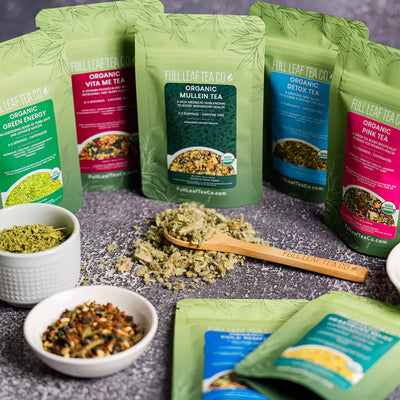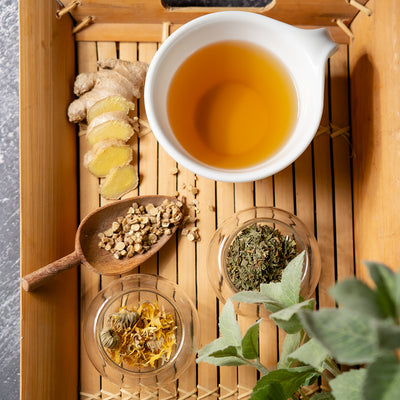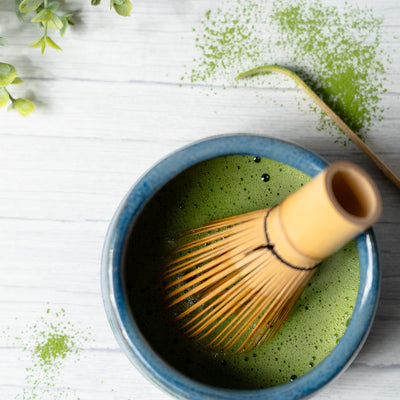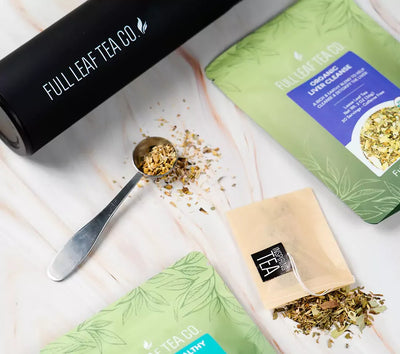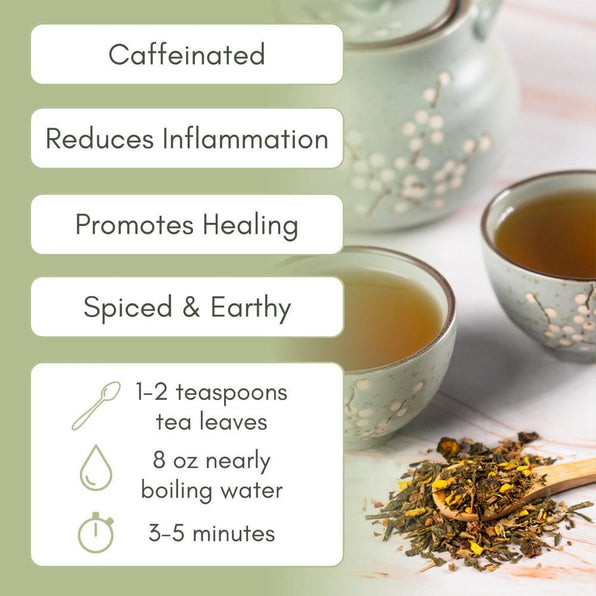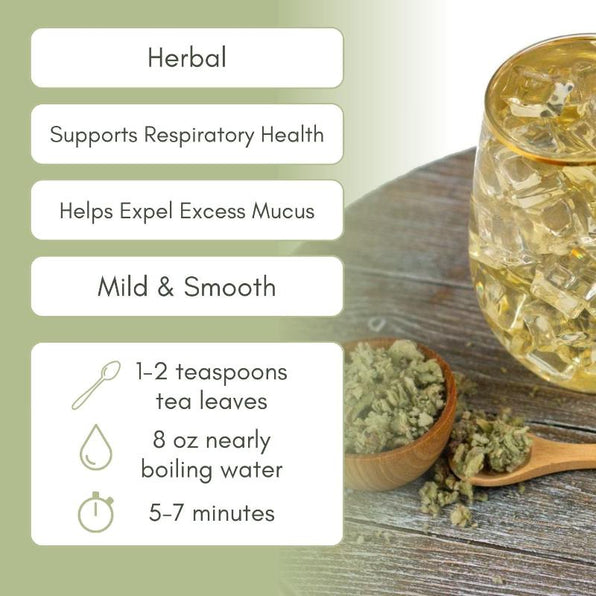Nature's Powerhouses for Health

In today's world, maintaining a healthy lifestyle is more important than ever. A diet rich in antioxidants can help protect the body from oxidative stress, a factor linked to aging, inflammation, and chronic illnesses.
Herbs are an incredible natural source of these antioxidants, each with unique benefits that can enhance overall wellness.
In this blog, we'll explore the top seven antioxidant-rich herbs—Organic Cacao Nibs, Organic Cloves, Organic Peppermint, Organic Cinnamon Chips, Organic Turmeric, Organic Black Pepper, and Organic Oregano. Including these powerhouse herbs in your daily routine can add a flavor boost to meals and significantly benefit your health. Let’s dive in!
What are Antioxidants?
Antioxidants are natural compounds that protect the body from oxidative stress, a process in which free radicals—unstable molecules produced by environmental factors, stress, or even metabolism—damage cells.
This cellular damage is linked to aging, inflammation, and various chronic diseases. Antioxidants work by neutralizing free radicals, helping to reduce their harmful effects and promoting better health.
Foods and herbs rich in antioxidants are beneficial because they support cellular health, boost immunity, and reduce the risk of various health issues.
Top Herbs for Boosting Antioxidants
1. Organic Cacao Nibs: A Chocolatey Antioxidant Boost
Organic Cacao Nibs are derived from the beans of the cacao plant and offer a unique, slightly bitter taste that’s naturally rich in antioxidants, particularly flavonoids.
Flavonoids are compounds known to reduce inflammation, improve blood flow, and support heart health. Studies have shown that cacao has one of the highest antioxidant capacities among food sources, making it a valuable addition to any diet (Keen et al., 2012).

2. Organic Cloves: Potent and Flavorful
Organic Cloves are one of the most antioxidant-dense spices available, containing high levels of polyphenols, which are known for their health-boosting properties (Shan et al., 2005).
Cloves have an especially potent effect on liver health, helping the body process and detoxify harmful substances.

3. Organic Peppermint: Refreshing and Healing
Organic Peppermint contains an abundance of rosmarinic acid, a compound with strong antioxidant and anti-inflammatory effects (Nabavi et al., 2015).
Research suggests that peppermint may help ease digestive symptoms and even enhance mental clarity. Enjoy peppermint as a tea, use it in a homemade seasoning mix, or add fresh leaves to salads or drinks. Its soothing qualities make it perfect for winding down after a long day.

4. Organic Cinnamon Chips: A Warm Spice with Immense Benefits
Organic Cinnamon is a powerful source of antioxidants. Cinnamaldehyde, the active compound in cinnamon, has been shown to reduce inflammation, support blood sugar regulation, and offer protective effects for the brain (Anderson, 2008).
Cinnamon is versatile, adding a comforting aroma and a health boost to beverages, desserts, and savory recipes alike.

5. Organic Turmeric: Golden Root of Wellness
Organic Turmeric's primary compound, curcumin, is a powerful antioxidant that helps combat oxidative damage and inflammation, supporting joint, brain, and heart health (Gupta et al., 2013).
Organic turmeric can be added to a variety of dishes, from smoothies and soups to teas and curries. Pairing it with black pepper enhances curcumin’s bioavailability, ensuring your body gets the full benefit of turmeric’s antioxidant power.

6. Organic Black Pepper: Enhancing Both Flavor and Health
Organic Black Pepper is often known as the “king of spices” and contains piperine, a compound that enhances the bioavailability of other nutrients, particularly curcumin from turmeric (Shoba et al., 1998).
Additionally, black pepper boasts its own set of antioxidants, helping to fight free radicals and supporting digestive health.

7. Organic Oregano: Mediterranean Herb with Mighty Power
Organic Oregano is incredibly rich in antioxidants, particularly thymol and carvacrol, which have been shown to possess antibacterial, antiviral, and anti-inflammatory properties (Burt, 2004).
Oregano is not only flavorful but also supports immune function and respiratory health.

Organic Antioxidant Boost Tea
This blend was create with all 7 of our top 7 antioxidant boosting herbs! This tea has a warm, cozy flavor profile with minty, chocolatey, and spiced notes. Its aroma is richly chocolatey.
It helps protect cells from damage and supports overall health and well-being.
Organic Antioxidant Tea can help combat aging, reduce inflammation, aid in detoxification, and promote better digestion, making it a beneficial addition to your daily routine.
Conclusion
Adding these antioxidant-rich herbs to your diet is a delicious and natural way to enhance your health. From the chocolaty depth of cacao nibs to the spicy warmth of cinnamon chips, each of these herbs offers unique flavors and health benefits that go beyond antioxidants.
Incorporating a variety of these herbs into your daily routine can help reduce inflammation, protect your cells from oxidative damage, and support overall wellness. Experimenting with different recipes or simply adding a pinch of one of these herbs to your meals or drinks can make a lasting difference in your health journey.
By making a habit of including antioxidant-rich herbs in your diet, you are taking a proactive step towards a healthier, more vibrant life.
References
- Keen, C. L., Holt, R. R., Oteiza, P. I., Fraga, C. G., & Schmitz, H. H. (2012). Cocoa antioxidants and cardiovascular health. American Journal of Clinical Nutrition, 95(3), 807S-812S.
- Shan, B., Cai, Y.-Z., Sun, M., & Corke, H. (2005). Antioxidant capacity of 26 spice extracts and characterization of their phenolic constituents. Journal of Agricultural and Food Chemistry, 53(20), 7749–7759.
- Nabavi, S. F., Di Lorenzo, A., Izadi, M., Sobarzo-Sanchez, E., Daglia, M., & Nabavi, S. M. (2015). Antibacterial effects of cinnamon: From farm to food, cosmetic and pharmaceutical industries. Nutrients, 7(9), 7729–7748.
- Anderson, R. A. (2008). Cinnamon, glucose, and insulin sensitivity. US Endocrinology, 4(1), 41–43.
- Gupta, S. C., Sung, B., Kim, J. H., Prasad, S., Li, S., & Aggarwal, B. B. (2013). Multitargeting by curcumin as revealed by molecular interaction studies. Natural Product Reports, 30(3), 383–396.
- Shoba, G., Joy, D., Joseph, T., Majeed, M., Rajendran, R., & Srinivas, P. S. (1998). Influence of piperine on the pharmacokinetics of curcumin in animals and human volunteers. Planta Medica, 64(4), 353–356.
- Burt, S. (2004). Essential oils: Their antibacterial properties and potential applications in foods—a review. International Journal of Food Microbiology, 94(3), 223–253.

